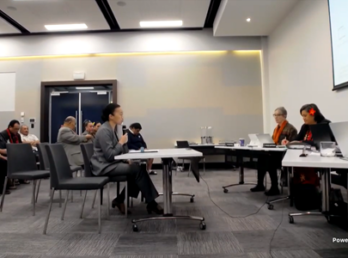COVID-19: Alert Level 3 Key Issues for NZ Business articles
Date
24 Apr 2020
Related Expertise
COVID-19: Alert Level 3 – Key issues for New Zealand Businesses
At 11:59pm Monday 27 April 2020, New Zealand will transition out of its near five-week, nationwide lockdown into Alert Level 3 for a period of at least two weeks.
The downgrade is a welcome move for many, as New Zealanders will be allowed to expand their immediate household bubbles and participate in low-risk, local recreational activities, and schools (years 1-10) and early childhood centres will be allowed to re-open.
However, the most significant change for New Zealanders at Alert Level 3 is that businesses which can operate ‘safely’ will be allowed to re-open, if remote working isn’t possible.
In this article we take a quick look at some of the key issues for New Zealand businesses intending to re-open under Alert Level 3.
Transition – From operating an ‘Essential Business’ to operating a ‘Safe Business’
The general rule for businesses under Alert Level 3 is that everyone must still work from home unless that is not possible. If work cannot be done from home, a business can re-open subject to the requirements and considerations set out below:
• Contactless: The business must be ‘contactless’. That is, the business must be able to function without physical, face-to-face or sustained close contact with the public. For example, businesses that operate online, phone-based or contactless ‘click and collect’, delivery or takeaway services (e.g. restaurants, cafés, bars, retail stores, hardware stores etc) will be allowed to re-open. Businesses which are only accessed by staff and without a customer-facing function (e.g. building, construction and forestry) can also re-open. Essential services (e.g. supermarkets, dairies, petrol stations, pharmacies or permitted health services) can continue to operate and remain exempt from the ‘contactless’ requirement. However, businesses with public or physical storefronts which are open to the public, or in which physical contact is integral to the business (e.g. hair salons, beauty therapy businesses, non-medical massage services etc), or which invariably involve public congregation other than for essential services (e.g. gyms, cinemas, pools, food courts etc), must remain closed under Alert Level 3.
• Operating ‘safely’: The business must be able to operate ‘safely’. To help ensure this requirement is met, businesses will need to take the following steps:
- requiring surfaces to be disinfected;
- maintaining good hygiene standards (particularly around hand hygiene and cough/sneeze etiquette);
- recording who is working together;
- ensuring workers and members of the public follow social distancing / physical proximity requirements as between each other – a 2m gap is recommended, but in some cases a 1m space between workers is considered adequate;
- requiring workers that may be unwell to stay away from the workplace; and
- observing all industry-specific public health requirements and all other health and safety obligations.
• Health and Safety considerations: All businesses intending to resume operations under Alert Level 3 are required to have a WorkSafe COVID-19 safety plan. This plan sets out how the business will manage and minimise COVID-19-related risk in the workplace. For example, businesses might seek to minimise risk by implementing new physical segregation measures, updated shift patterns, scheduled meal break times or staggered start and finish times. The plan must be shared with everyone at work (including workers, contractors and suppliers) before operations commence. Employers should also continue to be mindful of their obligations, generally, under the Health and Safety at Work Act to take all “reasonably practicable steps” to mitigate any risks in a workplace that could cause harm to an employee or anyone else (such as members of the public or customers).
• Travel: Workers will be allowed to travel for work within their region, or to a neighbouring region, but only if such travel is necessary.
• Accreditation: The Government has indicated that the Ministry of Business, Innovation and Employment will implement an accreditation scheme for businesses allowed to operate in Alert Level 3. At the time of writing, details of the accreditation scheme have not been made publicly available.
Commercial Leases
Rent abatement, particularly under clause 27.5 of the ADLS standard commercial lease, has been one of the most widely debated legal issues during the Alert Level 4 lockdown.
At the time of writing, there is still no statutory, regulatory or common law guidance as to what a “fair proportion of the rent and outgoings” amounts to under a commercial lease, for the purpose of determining the extent of any applicable rent abatement. Commercial landlords and tenants have been left to negotiate the matter as between themselves.
We are aware of many commercial landlords and tenants having entered into reduced rent agreements during the Alert Level 4 lockdown.
With the transition to Alert Level 3, we expect rent abatement negotiations to return to prominence, and reduced rent agreements to come up for review, particularly in circumstances where tenants are allowed to re-enter and conduct business from their premises. The extent to which a tenant can ‘access’ premises and ‘fully conduct’ its business are likely to be keenly debated topics.
Irrespective of the Alert level, we reiterate our previously held view that a court, if asked to determine a commercial lease dispute, will likely focus on what the landlord is providing as part of its consideration for the lease contract and of which the tenant receives a benefit, not on other circumstances of the landlord or the tenant.
Contact Tracing
It is hoped that the Government will provide urgent guidance as to what minimum level of contact tracing (if any) should be deployed by businesses in order to operate ‘safely’ at Alert Level 3. On 21 April 2020, the Finance Minister, Grant Robertson, confirmed that the Ministry of Health and Internal Affairs “are leading work on an app to help businesses with contact tracing at Level 3”. At the time of writing, details of the app have not been made publicly available.
The contact tracing guidelines issued by the Ministry of Health, for the hospitality industry on 20 March 2020, serve as a useful guide for businesses looking to re-open under Alert Level 3. They recommend that businesses record, in a contact tracing register, the following information about the business’s customers, suppliers, staff and guests: full name; address; phone number; email address; and applicable date and time of visit (or otherwise).
Contact tracing also raises privacy issues and so businesses should be mindful of their obligations under the Privacy Act in terms of the collection, storage and use of personal information.
Recommendations
The business environment under Alert Level 3, and thereafter, will present a number of new challenges for businesses across all industries.
Set out below are some practical tips for businesses, intending to operate under Alert Level 3, to start thinking about now:
• Employment: Employers should consider:
- negotiating new working arrangements on a good faith basis with their employees, before any changes to working conditions are implemented;
- whether some employees should be taking paid leave or have their ‘stand down’ period extended, as required; and
- the conditions of the Government’s Wage Subsidy and how these apply to employees following changes made to working arrangements.
• Worksafe COVID-19 safety plan: Undertake a thorough health and safety review and analysis of the workplace and prepare a WorkSafe COVID-19 safety plan, as soon as possible.
• Alert Level 3 requirements: Communicate the Government’s Alert Level 3 requirements to staff and establish a system for ensuring those requirements are being observed on an ongoing basis.
• Lease: Re-engage with your landlord / tenant and review any agreements reached under Alert Level 4 regarding rental payments or rent abatement. Ensure any new or varied reduced rent agreement is in writing.
• Premises layout: Review and upgrade the business’s physical office or warehouse space to ensure appropriate segregation measures are in place and social distancing / physical proximity requirements are being observed.
• Hygiene: Ensure the business holds, and replenishes on an ongoing basis, fully-stocked supplies of hand sanitiser, soap, wipes and detergent.
• Contact tracing: Establish a contact tracing register for the business in respect of all of the business’s customers, suppliers, staff and guests.
• Payment and logistics: Review and upgrade the business’s payment systems and each step of the supply chain (i.e. product ordering, collection and distribution etc) to ensure they operate on a contactless basis).
• Terms of trade: Review the business’s terms of trade to ensure obligations and timeframes can still be satisfied. Assess whether protections or variations need to be built into the terms of trade regarding performance and payment obligations, suspension, termination, default, force majeure, material adverse change etc.
• Records: Ensure the business maintains accurate and up-to-date records and accounts. Anecdotal commentary suggests that the Government may commence audits of businesses that have successfully applied for components of its COVID-19 economic response and stimulus package.
• Couriers: Consider entering into ongoing supply arrangements with courier service providers.
• Business plan: Review the business’s short to mid-term plan and re-evaluate at regular intervals.
• Specialist legal advice: Seek specialist legal advice, as soon as possible, in relation to operating under Alert Level 3.
Further Government information on workplace operations at COVID-19 Alert levels can be found here.
The above overview has been provided for general information purposes only. It is not, nor is it intended to be treated as, legal advice, and is subject to change without notice.
Subscribe
Get insights sent direct to your email.




















